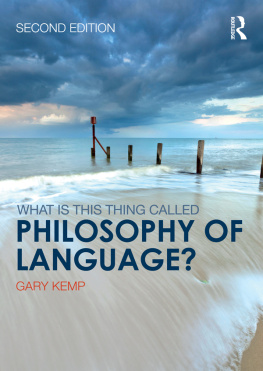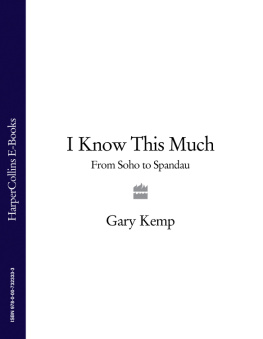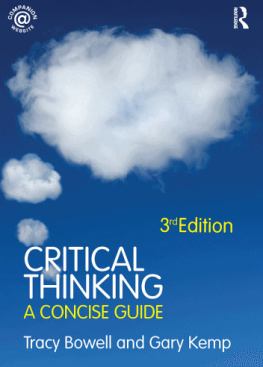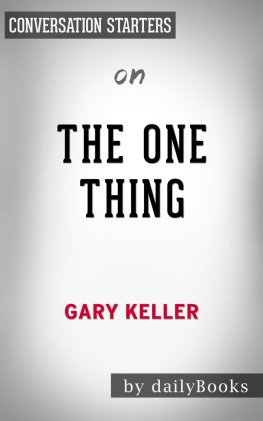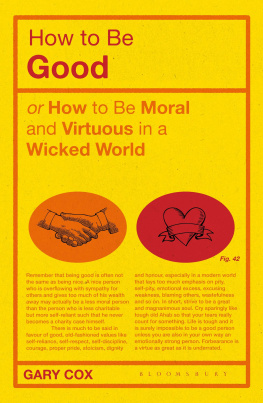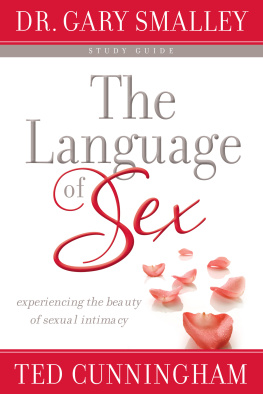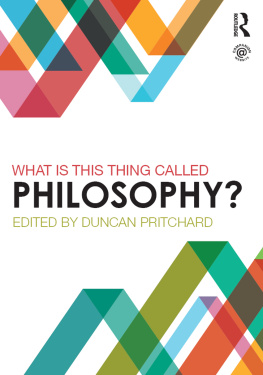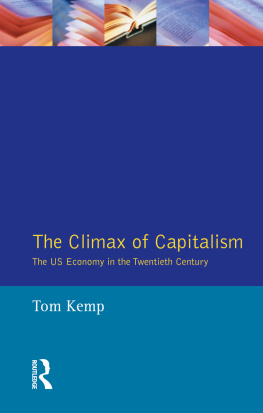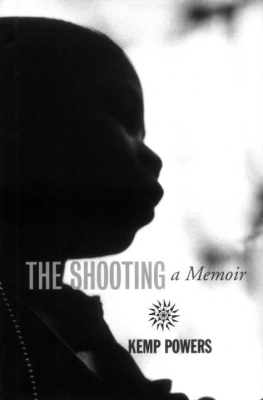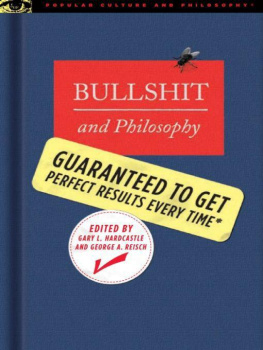Gary Kemp - What is this thing called Philosophy of Language?
Here you can read online Gary Kemp - What is this thing called Philosophy of Language? full text of the book (entire story) in english for free. Download pdf and epub, get meaning, cover and reviews about this ebook. year: 2017, publisher: Routledge, genre: Science. Description of the work, (preface) as well as reviews are available. Best literature library LitArk.com created for fans of good reading and offers a wide selection of genres:
Romance novel
Science fiction
Adventure
Detective
Science
History
Home and family
Prose
Art
Politics
Computer
Non-fiction
Religion
Business
Children
Humor
Choose a favorite category and find really read worthwhile books. Enjoy immersion in the world of imagination, feel the emotions of the characters or learn something new for yourself, make an fascinating discovery.
What is this thing called Philosophy of Language?: summary, description and annotation
We offer to read an annotation, description, summary or preface (depends on what the author of the book "What is this thing called Philosophy of Language?" wrote himself). If you haven't found the necessary information about the book — write in the comments, we will try to find it.
What is this thing called Philosophy of Language? — read online for free the complete book (whole text) full work
Below is the text of the book, divided by pages. System saving the place of the last page read, allows you to conveniently read the book "What is this thing called Philosophy of Language?" online for free, without having to search again every time where you left off. Put a bookmark, and you can go to the page where you finished reading at any time.
Font size:
Interval:
Bookmark:
Second edition published 2018
by Routledge
2 Park Square, Milton Park, Abingdon, Oxon, OX14 4RN
and by Routledge
711 Third Avenue, New York, NY 10017
Routledge is an imprint of the Taylor & Francis Group, an informa business
2018 Gary Kemp
The right of Gary Kemp to be identified as author of this work has been asserted by him in accordance with sections 77 and 78 of the Copyright, Designs and Patents Act 1988.
All rights reserved. No part of this book may be reprinted or reproduced or utilised in any form or by any electronic, mechanical, or other means, now known or hereafter invented, including photocopying and recording, or in any information storage or retrieval system, without permission in writing from the publishers.
Trademark notice: Product or corporate names may be trademarks or registered trademarks, and are used only for identification and explanation without intent to infringe.
First edition published by Routledge 2013
British Library Cataloguing-in-Publication Data
A catalogue record for this book is available from the British Library
Library of Congress Cataloging-in-Publication Data
Names: Kemp, Gary, 1960 October 15- author.
Title: What is this thing called philosophy of language?/Gary Kemp.
Description: 2 [edition]. | New York: Routledge, 2018. |
Series: What is this thing called? | Includes bibliographical references
and index.
Identifiers: LCCN 2017032554 | ISBN 9781138225817 (hardback) |
ISBN 9781138225824 (pbk.) | ISBN 9781315277486 (ebook)
Subjects: LCSH: Semantics (Philosophy) | Meaning (Philosophy) |
LinguisticsPhilosophy.
Classification: LCC P325.K46 2018 | DDC 121/.68dc23
LC record available at https://lccn.loc.gov/2017032554
ISBN: 978-1-138-22581-7 (hbk)
ISBN: 978-1-138-22582-4 (pbk)
ISBN: 978-1-315-27748-6 (ebk)
Typeset in Berling
by Sunrise Setting Ltd, Brixham, UK

The Routledge What is this thing called? series of concise textbooks have been designed for use by students coming to a core and important area of philosophy for the first time. Each volume explores the relevant central questions with clear explanation of complex ideas and engaging contemporary examples. Features to aid study include text boxes, chapter summaries, study questions, further reading and glossaries.
Other titles in the series can be found at https://www.routledge.com/What-is-this-thing-called/book-series/WITTC
What is this thing called Knowledge? Third edition
Duncan Pritchard
What is this thing called Philosophy of Language?
Gary Kemp
What is this thing called Ethics? Second edition
Christopher Bennett
What is this thing called Metaethics?
Matthew Chrisman
What is this thing called Global Justice?
Kok-Chor Tan
What is this thing called Metaphysics? Third edition
Brian Garrett
What is this thing called Philosophy of Religion? Elizabeth Burns
What is this thing called Philosophy of Language? Second edition
Gary Kemp
In the second edition: new are .
Most students approaching the philosophy of language for the first time are baffled by it. They are baffled in way that they are not baffled by moral philosophy, political philosophy or the theory of knowledge. Partly because some of the hardest steps come right at the beginning, they find it excruciatingly difficult to find their feet with the subject, as if they were learning to surf or to ski.
The situation is not helped by the fact that most of the primary materials are written at the highest philosophical level, with many technical terms and principles assumed to be already understood that will be Greek to the neophyte. This textbook is meant to help the beginning student into the subject. There are of course some excellent textbooks already but few for the genuine beginner. Ill name one that is pitched at roughly the same level as this: William Lycans Philosophy of Language: A Contemporary Introduction (Routledge, second edition, 2008). The book is outstanding, but there are large differences between his book and this one. His book is arranged topically; it is full of names and isms, and the problems, replies and counter-replies come thick and fast. The approach works for the smartest students, who will come away well equipped to take part in more recent debates. By contrast, this book is for the most part theory-based and often theorist-based, more concerned to keep ones eyes fixed on the larger issues and themes, with far fewer names mentioned, a much smaller range of problems considered and crucially a slower pace. There is no getting around the difficulty of the first steps, but this book attempts to immerse the student into a few paramount theories and their authors Frege, Russell, etc. in order to get them used to thinking within the authors point of view and to get them to see why one would think as the author does.
In addition, and perhaps most importantly, I hope the student will come away with a coherent picture of the history of the subject. The history will not be thorough; the sketch is only of the main lines and only of those lines if such there be which are for the newcomer both interesting and relatively easy to learn. It is designed to fit comfortably into one semester of teaching. There is nothing or precious little of Burge, Church, Dummett, Evans, Fodor, Geach, D. Lewis, Millikan, Montague, Schiffer, Sellars, Stalnaker and Tarski, and only selected bits of Carnap, Ayer, Grice, Searle and Kaplan. Nothing or precious little of teleosemantics, truth-maker semantics, conceptual role semantics, situation semantics, game-theoretic semantics, dynamic semantics, intention-based semantics, semantical minimalism, expressivist semantics, realism versus anti-realism, relevance theory or the theory of truth. I hope that students will be able to pursue those topics once theyve got their feet wet in the philosophy of language by studying this book and the authors it discusses.
A likely criticism of the book is that it is too much weighted towards the history of the subject, even that it is old-fashioned. This boils down to a philosophical difference about how to teach the philosophy of language. In my view the subject is not like mathematical logic or geometry, which normally are taught in complete detachment from their histories. The subject is too contentious, as evinced by the broad range of isms and theories just mentioned. I think that one is better placed to review more recent material and controversies if one first has a solid understanding of the basics of Frege, Russell and so on. A related criticism is that philosophy of language has in recent years shifted towards empirical linguistics informed by a more detailed conception of syntax and pragmatics when in this book those subjects are relatively minor. My response is simply that the subject of this book is not linguistics or the philosophy of linguistics but the philosophy of language as understood in the past one-hundred years; one has ones eyes on the pursuance of philosophical questions through reflection on language on the fundamentals of thought and meaning rather than a detailed theory of actual language.
Another likely criticism is that, outside the study questions, it is not very critical. I admit but do not repent. I do feel that a big mistake that is often made in teaching the philosophy of language is to criticise a position almost the moment its on the table. In my experience, it takes some time for a position to sink in, especially to see why one might hold it. If the teacher criticises the view from the get-go, the student is likely to think it not worth spending time on it aside from exam-taking purposes and may wonder why the position is being taught if it is so obviously full of holes. At the risk of betraying my Californian roots, I want to put a more positive spin on the material.
Font size:
Interval:
Bookmark:
Similar books «What is this thing called Philosophy of Language?»
Look at similar books to What is this thing called Philosophy of Language?. We have selected literature similar in name and meaning in the hope of providing readers with more options to find new, interesting, not yet read works.
Discussion, reviews of the book What is this thing called Philosophy of Language? and just readers' own opinions. Leave your comments, write what you think about the work, its meaning or the main characters. Specify what exactly you liked and what you didn't like, and why you think so.

